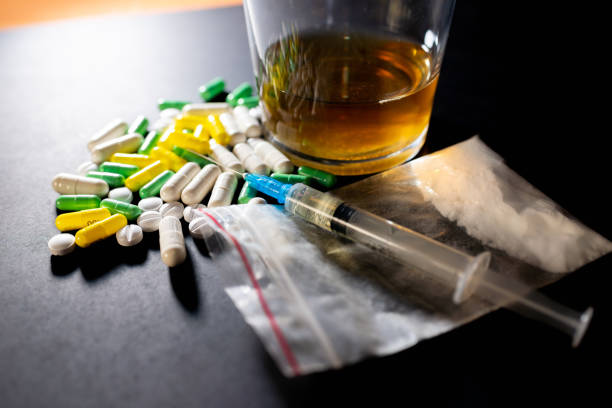Substance Abuse Disorder (SUD) is a chronic condition that impacts millions of people worldwide, leading to significant physical, mental, and social challenges. This disorder arises from the recurrent use of substances such as alcohol, prescription medications, and illicit drugs, which negatively affect daily life and overall health.
Understanding the causes, symptoms, and available treatments for SUD is vital to raising awareness and encouraging those affected to seek professional help.
What Causes Substance Abuse Disorder?
The development of SUD is influenced by a combination of biological, psychological, and environmental factors:
- Genetics and Family History:
A family history of addiction increases the likelihood of developing SUD, as genetic predispositions can make some individuals more vulnerable. - Mental Health Conditions:
Disorders such as depression, anxiety, and post-traumatic stress disorder (PTSD) can lead to self-medication with substances, increasing the risk of dependency. - Environmental Influences:
Peer pressure, a history of trauma, and exposure to substance use at an early age can all contribute to the onset of SUD. - Early Use of Substances:
The earlier a person begins using substances, the higher the risk of developing addiction due to the impact on brain development. - Chemical Properties of Substances:
Certain drugs, such as opioids or cocaine, have highly addictive properties, making individuals more prone to dependency after initial use.
Common Symptoms of Substance Abuse Disorder
SUD can manifest in various ways, depending on the substance involved and the individual’s circumstances. Common symptoms include:
- Physical Symptoms:
- Changes in appetite or sleep patterns.
- Unexplained weight loss or gain.
- Frequent nosebleeds (from snorting drugs) or track marks (from injecting drugs).
- Decline in physical hygiene and appearance.
- Behavioral Symptoms:
- Increased tolerance, requiring more of the substance to achieve the desired effect.
- Unsuccessful attempts to quit or cut down on use.
- Neglect of responsibilities at work, school, or home.
- Social withdrawal and loss of interest in previously enjoyed activities.
- Psychological Symptoms:
- Mood swings, irritability, or aggression.
- Paranoia, hallucinations, or delusions.
- Intense cravings for the substance.
- Depression or feelings of hopelessness.
The Impact of Substance Abuse Disorder
SUD not only affects the individual but also has a ripple effect on families, communities, and society as a whole. It can lead to:
- Health Complications: Liver damage, heart disease, and mental health disorders.
- Legal and Financial Issues: Criminal charges related to substance possession or abuse, as well as financial instability.
- Strained Relationships: Family and friends often bear the emotional burden of a loved one’s addiction.
Why Seek Professional Help?
Overcoming SUD requires comprehensive treatment that addresses both the physical dependency and the underlying causes. Approaches often include:
- Detoxification under medical supervision.
- Behavioral therapy and counseling.
- Medication-assisted treatment for withdrawal and cravings.
- Support groups and aftercare programs.
If you or someone you know is struggling with SUD, take the first step towards recovery by consulting qualified medical professionals. You can register and book an appointment on the Virtual Doctors App or download the Virtual Doctors Healthplus App on Google Play for convenient, confidential access to expert care.
Prevention and Awareness
Preventing SUD involves education, early intervention, and creating supportive environments. Encourage open conversations about the risks of substance use and provide young people with the tools to make informed choices.
Substance Abuse Disorder is a serious but treatable condition. With the right support and medical intervention, individuals can regain control of their lives and achieve lasting recovery. Don’t wait—reach out for help today.
